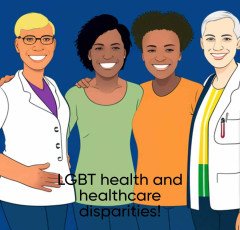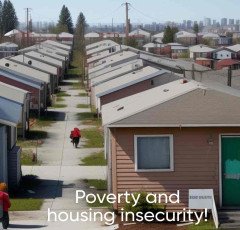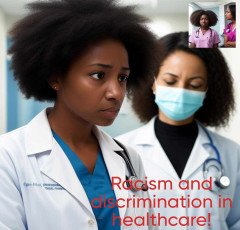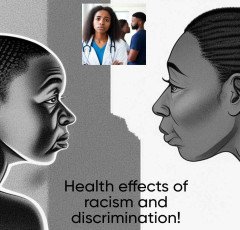
LGBT Health And Healthcare Disparities

LGBT (lesbian, gay, bisexual, and transgender) health is the state of being for those who identify as part of the LGBT community in terms of their physical, mental, and social health.
Unfortunately, there are major health and healthcare disparities that affect LGBT people, which include variations in health outcomes and access to healthcare based on things like sexual orientation, gender identity, and gender expression. For LGBT people, these differences can have a major detrimental impact on their health, including higher rates of depression, anxiety, substance misuse, and suicide.
Discrimination, stigma, lack of access to culturally competent healthcare practitioners, lack of legal safeguards, and social isolation are a few of the reasons that contribute to these disparities. Due to financial limitations or a lack of insurance coverage, LGBT people may also experience difficulties getting access to healthcare.
To ensure that LGBT people receive appropriate and effective treatment, healthcare professionals must be aware of these differences and offer culturally competent care. A variety of initiatives are being taken to alleviate these inequities, such as educating healthcare professionals about LGBT culture, broadening access to healthcare coverage and services, and promoting legislative protections for LGBT people.
There are particular health issues that are more common in the LGBT community in addition to the previously mentioned causes.
For instance, due to stigma and discrimination in medical settings, lesbian and bisexual women may experience difficulties receiving regular cancer screenings and have higher risks of breast cancer. Transgender people might need gender-affirming medical care, like hormone therapy or gender-affirming operations, which might not be reimbursed by insurance or accessible in their location.
Additionally, the prevalence of STIs and other sexually transmitted diseases (HIV/AIDS) is higher among LGBT people. This is caused by a number of things, including stigma and prejudice, which reduce people's access to healthcare, social isolation, and engaging in riskier activities owing to a lack of resources and education.
The LGBT community has particular health needs and inequities, which the healthcare system must acknowledge and take into account. This entails offering care that is sensitive to cultural differences, advocating for laws that safeguard the rights and welfare of LGBT people, and enhancing access to high-quality, reasonably priced healthcare services. We can enhance the health and wellbeing of every person of our communities by addressing these discrepancies.
To remember that some LGBT subgroups experience significant health inequalities.
For instance, discrimination against LGBT people who are also people of color or come from low-income families may be increased, and they may face hurdles to receiving healthcare treatments.
LGBT seniors may experience particular aging-related health issues, such as greater rates of loneliness, chronic illness rates, and restricted access to treatment because of retirement or a lack of social support.
In spite of sexual orientation, gender identity, or gender expression, initiatives are being undertaken to address these gaps and advance health equity for everyone. This involves advancing laws that safeguard LGBT people's rights and access to healthcare, giving healthcare professionals instruction and training to increase their cultural competency, and expanding research funding to better comprehend the requirements of the LGBT population in terms of health.
In order to achieve health equity for the LGBT population, a multifaceted strategy must be used to address the underlying causes of prejudice, stigma, and lack of access to healthcare services. We can all work together to advance the health and happiness of people, regardless of their sexual orientation, gender identity, or mode of expression.
There have been some encouraging advancements in the direction of tackling LGBT health disparities in recent years.
For instance, the Affordable Care Act (ACA) makes it simpler for LGBT people to get healthcare services by outlawing discrimination based on sexual orientation and gender identity in healthcare settings.
Initiatives have also been made to enhance the representation of LGBT people in the healthcare industry and to train healthcare professionals in how to treat LGBT patients in a way that is culturally sensitive. Additionally, advocacy groups and neighborhood-based organizations aim to improve LGBT community members' access to healthcare services and awareness, especially for individuals who live in underserved regions or who experience several forms of discrimination.
Despite these initiatives, there is still much to be done to guarantee that LGBT people have equitable access to top-notch medical care. To address the underlying causes of LGBT health disparities and advance health equity for everyone, regardless of sexual orientation, gender identity, or expression, ongoing activism and policy changes are required.
A dedication to social justice and equity, as well as a readiness to hear and value the perspectives and experiences of LGBT people themselves, are necessary for addressing LGBT health inequalities. We can only develop a healthcare system that really satisfies the needs of all people, including those who identify as LGBT people, by working together.
There is a growing understanding that LGBT health and healthcare disparities are a public health issue that affects the health and well-being of entire communities rather than merely a concern for individual health outcomes. We can enhance the health outcomes of LGBT people by addressing the social determinants of health that cause inequities in LGBT health, such as stigma, discrimination, and lack of access to healthcare.
Should acknowledge the variety within the LGBT community, as there are big differences in experiences and medical requirements between various subgroups. This encompasses those who identify as queer, intersex, asexual, and others who aren't always included in debates of LGBT health in the mainstream.
To give marginalized groups within the LGBT community a voice and to prioritize their voices, as well as to make sure that healthcare services are tailored to fit the particular needs of everyone, regardless of sexual orientation, gender identity, or expression.
LGBT health and healthcare disparities are a complicated and multifaceted issue that calls for a comprehensive strategy that addresses the underlying causes of stigma and discrimination, broadens access to healthcare services that are sensitive to cultural differences, and advances health equity for all people, regardless of their sexual orientation, gender identity, or mode of expression.
To acknowledge the importance of allies in resolving the disparities in LGBT health and healthcare.
A person who does not identify as LGBT but supports and promotes the rights and well-being of LGBT people is said to be an ally.
By supporting laws and initiatives that advance health equity, combating prejudice and stigma in their neighborhoods, and raising awareness of the special health requirements and experiences of LGBT people, allies can play a significant role in reducing the health disparities experienced by LGBT people.
We can build a more equitable and inclusive healthcare system that caters to everyone's needs by cooperating and placing a priority on the health and well-being of every person, regardless of sexual orientation, gender identity, or expression.
Yes, you are entirely correct. By leveraging their privilege and resources to promote change and aid the efforts of LGBT people and organizations, allies can significantly contribute to the cause of health equity for the LGBT community.
Allies can, for instance, support LGBT healthcare practitioners and groups that offer culturally appropriate treatment to LGBT patients, campaign for laws protecting the rights and wellbeing of LGBT people, and fight stigma and prejudice in both their personal and professional life.
It is crucial for supporters to pay attention to the needs and experiences of LGBT people, prioritize those needs, and understand how various types of oppression, such as racism, poverty, and ableism, can intersect and affect the health and wellbeing of LGBT people.
We can build a more equitable and inclusive healthcare system that caters to everyone's needs by cooperating and placing a priority on the health and well-being of every person, regardless of sexual orientation, gender identity, or expression.
That is entirely accurate.
Allies can contribute to the development of welcoming conditions for LGBT people in the community at large as well as in healthcare settings. This can involve promoting inclusive policies and procedures at educational institutions, workplaces, and other places of public gathering, as well as opposing discrimination and harassment when it occurs.
Allies can also help LGBT people who may face additional obstacles to receiving medical care, such as those who are homeless, poor, or have mental health issues, by utilizing their privilege and resources.
A coordinated effort that prioritizes LGBT individuals' perspectives and experiences, combats stigma and discrimination, and advances health equity for all is necessary to address the gaps in LGBT health and healthcare. No of a person's sexual orientation, gender identity, or mode of expression, we can build a healthcare system that really serves their needs by working together.
Yes, and it's crucial to acknowledge that efforts to eliminate disparities in LGBT health and healthcare are continuous and call for constant dedication and action. This includes ongoing support for community-based organizations and advocacy groups that work to promote policies and initiatives that ensure health equity for the LGBT community. It also includes ongoing training and education for healthcare professionals on how to provide LGBT patients with culturally competent care.
Acknowledge that efforts to address LGBT health inequities may advance slowly and gradually and have setbacks.
However, it is crucial to continue working for a healthcare system that caters to everyone's needs and to remain dedicated to the cause of promoting health equity for all people, regardless of their sexual orientation, gender identity, or expression.
A comprehensive strategy that addresses the underlying causes of stigma and discrimination, expands access to culturally competent healthcare services, and promotes health equity for all people, regardless of their sexual orientation, gender identity, or expression is needed to address the complex and multifaceted issue of LGBT health and healthcare disparities. We can build a more equitable and inclusive healthcare system that serves everyone's needs by cooperating and placing emphasis on everyone's health and well-being.
Must keep striving for a healthcare system that is egalitarian and inclusive for everyone, irrespective of their sexual orientation, gender identity, or mode of expression. This includes promoting laws that deal with social factors, such as stigma and discrimination, that affect LGBT people's health and contribute to health inequalities.
The continual training and education of healthcare professionals in how to treat LGBT patients with cultural competence and to establish environments that are safe and welcoming for LGBT patients.
The promotion of health equality for the LGBT community depends heavily on community-based organizations and advocacy groups that focus on reducing health disparities among LGBT people. It is crucial to assist these organisations in their work.
People, healthcare professionals, legislators, and society at large must all maintain a consistent and continuous commitment to addressing LGBT health and healthcare inequities. We can build a more equitable and inclusive healthcare system that caters to everyone's needs by working together and placing a priority on the health and well-being of every person.















 1150+Trendy kids coloring pages Bundle
1150+Trendy kids coloring pages Bundle  Only For The United States
Only For The United States  ASUS Laptop
ASUS Laptop  Unreal Engine 5 For Beginners Learn The Basics Of Virtual Production
Unreal Engine 5 For Beginners Learn The Basics Of Virtual Production  Best Selling Books
Best Selling Books  Best Robotic Vacuum Cleaners
Best Robotic Vacuum Cleaners  Hello Theme
Hello Theme  Artificial Intelligence
Artificial Intelligence  Creative Brief For Video Shoot
Creative Brief For Video Shoot  Favorite Company (Cuelinks)
Favorite Company (Cuelinks)  Online Marketing
Online Marketing  Acer Laptop
Acer Laptop  The Secret Email System
The Secret Email System  All Wireless Products
All Wireless Products  SEO Checklist
SEO Checklist  Sennheiser
Sennheiser  SOFAS
SOFAS  NordVPN
NordVPN  ASPINAL LONDON
ASPINAL LONDON  Graphics & Design
Graphics & Design  Men Clothing
Men Clothing  NordLocker
NordLocker  ELECTRONIC ACCESSORIES
ELECTRONIC ACCESSORIES  BEST SELLER TOP10
BEST SELLER TOP10  Unlimited access to classes on illustration, photography, design, film, music
Unlimited access to classes on illustration, photography, design, film, music  NordPass
NordPass  Amazon Best Selling Products
Amazon Best Selling Products  The Click Engine
The Click Engine  TitTok Revolution
TitTok Revolution  Smart Doorbell
Smart Doorbell  RPM 3.0
RPM 3.0  One World Collection
One World Collection  Online Technology Classes
Online Technology Classes  Women Fashion
Women Fashion  Top Rated From Amazon
Top Rated From Amazon  Best Home Appliances
Best Home Appliances  Best Sellers On Amazon
Best Sellers On Amazon  Hot Bags For Pain Relief
Hot Bags For Pain Relief 
















